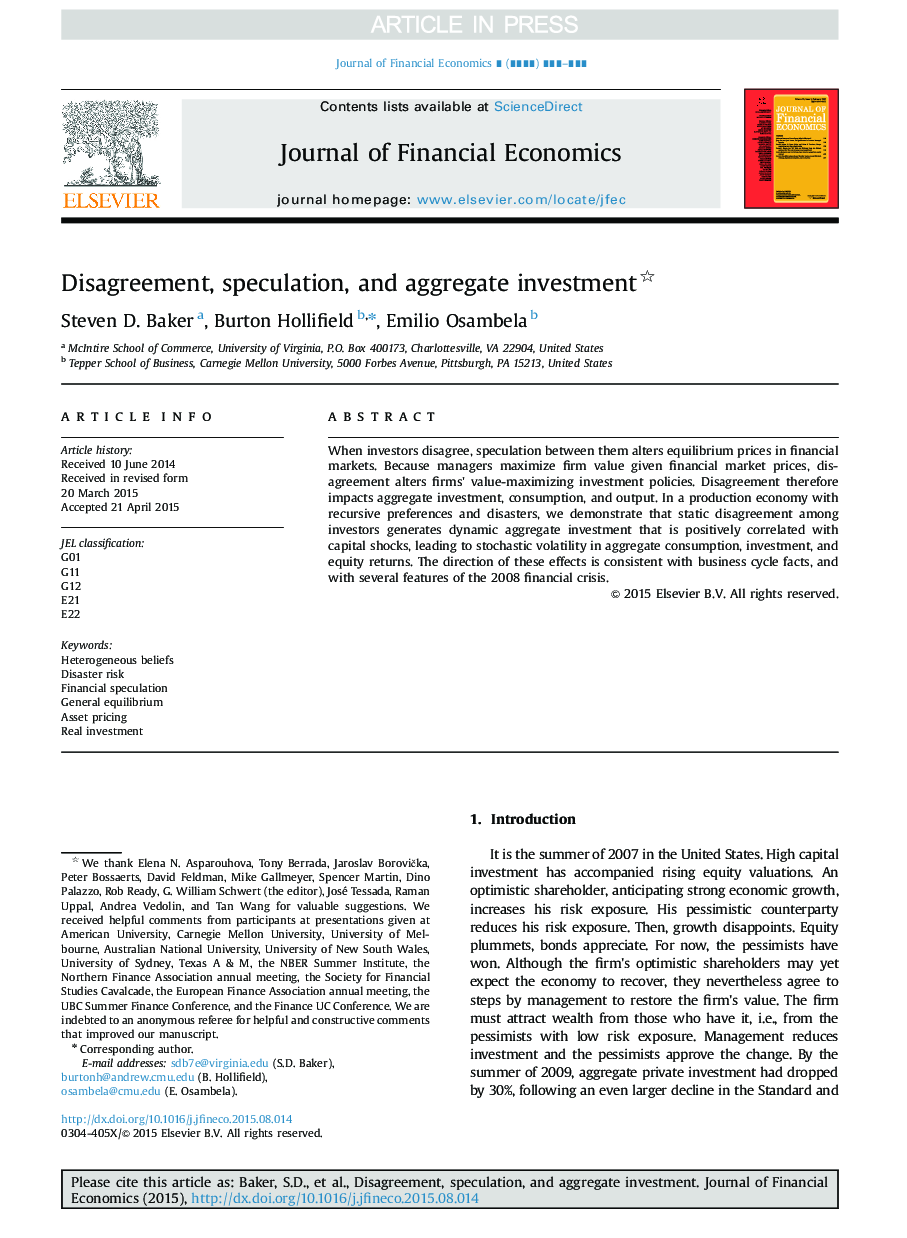| Article ID | Journal | Published Year | Pages | File Type |
|---|---|---|---|---|
| 10475752 | Journal of Financial Economics | 2016 | 16 Pages |
Abstract
When investors disagree, speculation between them alters equilibrium prices in financial markets. Because managers maximize firm value given financial market prices, disagreement alters firms' value-maximizing investment policies. Disagreement therefore impacts aggregate investment, consumption, and output. In a production economy with recursive preferences and disasters, we demonstrate that static disagreement among investors generates dynamic aggregate investment that is positively correlated with capital shocks, leading to stochastic volatility in aggregate consumption, investment, and equity returns. The direction of these effects is consistent with business cycle facts, and with several features of the 2008 financial crisis.
Keywords
Related Topics
Social Sciences and Humanities
Business, Management and Accounting
Accounting
Authors
Steven D. Baker, Burton Hollifield, Emilio Osambela,
